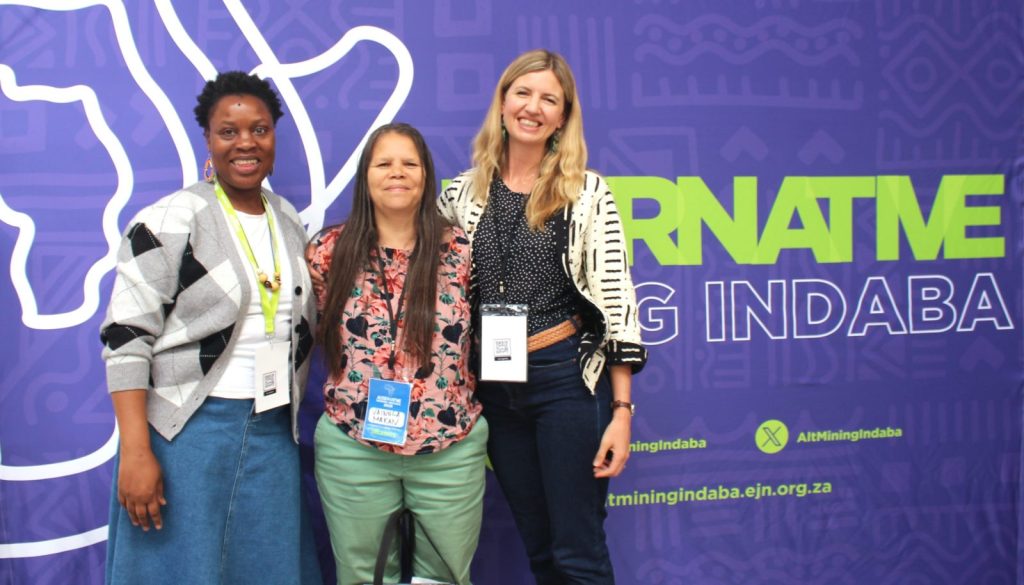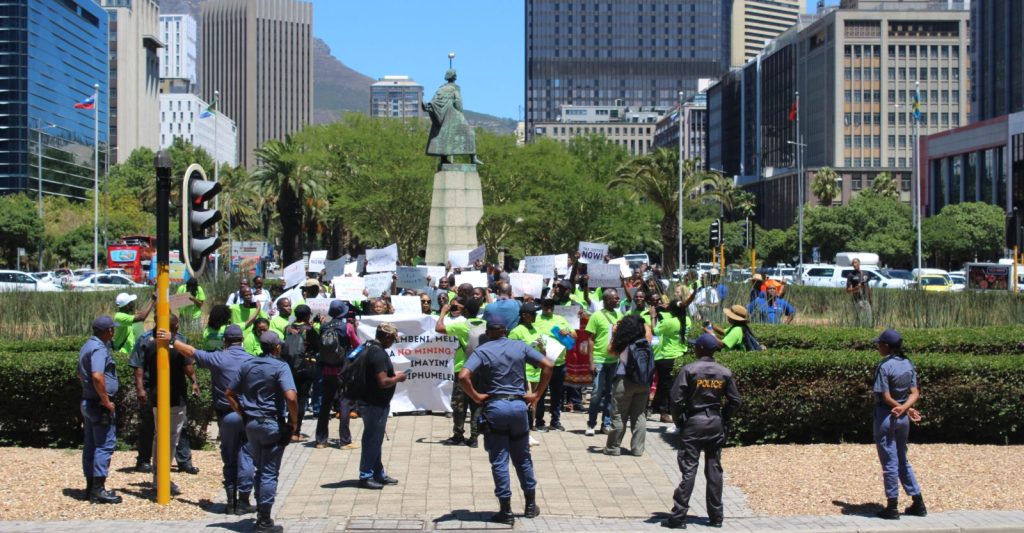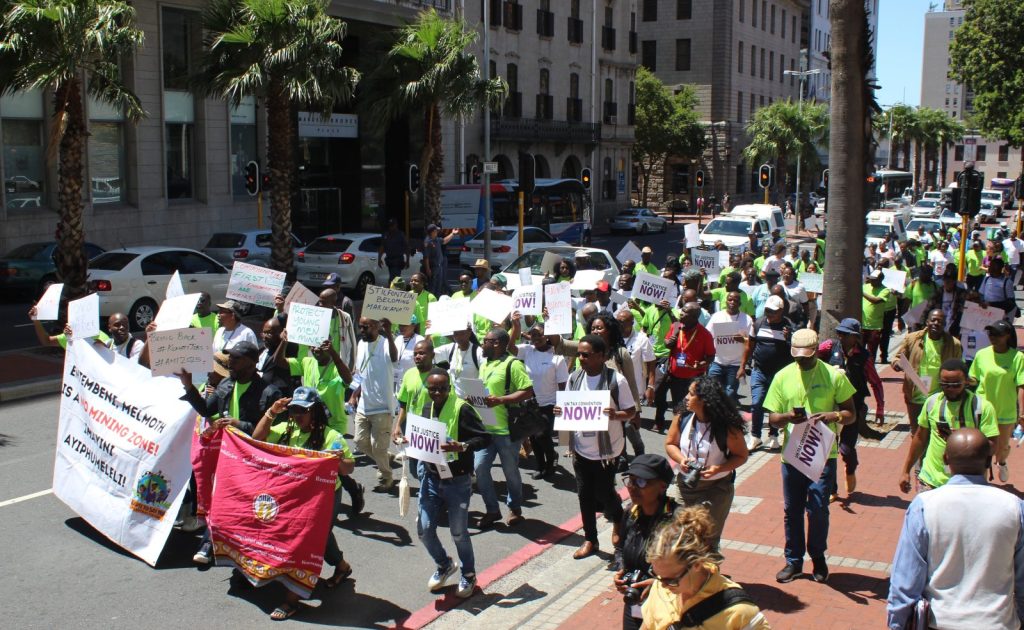Environmental activists marched to the Cape Town International Convention (CTICC) to close off the 2025 Alternative Mining Indaba.
Mining Indaba fever hit the Cape Town city centre this week and ended hours before South Africa’s President, Cyril Ramaphosa was set to take to the podium for the annual State of the Nation Address.
Running in parallel with the Mining Indaba, the Alternative Mining Indaba (AMI) hosted in Woodstock – a neighbouring suburb to the city centre. The AMI is a space for alternative voices to share the experiences of mining in the country as mine workers, mine affected communities and civil society leaders.
The AMI 2025’s theme is “Energy transition for who? The critical question of our times!”
Natural Justice team was well represented at the AMI – as they were invited to speak on various panels and attended several side events.

Natural Justice Affirming Rights Programme Manager Jacqueline Rukanda (left), Vainola Makan from Ubuntu Women and Youth Movement (centre) and Natural Justice Standing with Communities Programme manager, Amelia Heyns at the AMI 2025.
Natural Justice at the AMI
Jacqueline Rukanda, Natural Justice Programme Manager of the Affirming Rights Programme, participated in the side event panel discussion titled “Reclaiming Earth, Restoring Balance and Care in the Extractives Sector: Afro-ecofeminist Approaches to Mining Sector Transformation.”
She spoke about injustices and inequalities in environmental and natural resource governance.
“The inequalities and injustices associated with environmental and natural resources governance impact the very heart of fundamental civil, political, social and economic rights,” says Jacqueline.
During her presentation Jacqueline highlighted that environmental and mineral governance impactsthe right to participate in public life and in decision making – which implicates the right to freedom of expression/of opinion, the right to access to justice, the rights to health, to water, to food, to land and security of tenure, recognition/ identity – and so many more.
She spoke of how countries have now transitioned to democratic systems of governance anchored on the protection of human rights, yet we see a continuation of the same extractive and abusive manner of making profit at the expense of human rights protection.
“The struggle for environmental justice is intertwined with fundamental human rights – and that is why the struggle is hard, and long. It is centred around the progress towards achieving sustainable development and speaks to the goals that were set.”
Amelia Heyns, Programme Manager for the Standing with Communities programme at Natural Justice participated in a panel discussion hosted by the Pan African Lawyers Union on Wednesday. The focus was on evaluating the implications of oil backed debts amidst the challenges of a just transition process in Africa and ensuring effective remedies to victims of business and human rights violations.
The AMI ended at the CTICC where activists marched through the streets of Cape Town, ending at the convention centre where the Minning Indaba was held on Thursday 6 February 2025. With fists in the air their voices echoed through the streets and ricochetted off the tall city buildings as they chanted and sang struggle songs. A memorandum of understanding was handed over to South African government officials at the CTICC.

Energy transition for who? The critical question of our times!
As the 2025 Mining Indaba ends and as millions of South Africans tuned in for the 2025 State of the Nation Adress, the president reiterated the country’s commitment to engaging with the Just Transition as reflected in discussions of commitments to exploring opportunities in green energy – that is critical minerals, green hydrogen and green industrialisation.
The fact remains that South African government continues to allow big corporations to explore for oil and gas along our coast when climate change science shows that we shouldn’t be opening new extractive projects.
The major problems of continued exploration and production center on:
- the abusive and extractive methods used by corporations that disregard environmental health and safety of the public;
- environmental degradation left behind – unrehabilitated;
- the links to conflict and wars in areas where there are mineral deposits;
- the lack of equitable benefit sharing for affected communities and profit-making at large, which does not result in sustainable development.
Despite the president’s commitments around the shift to energy development and industrialisation, the presidency remains committed to developing an enabling environment for investments into oil and gas exploration and production, through the passing of laws such as the Upstream Petroleum Development Act.
These kinds of enabling policies will perpetuate major problems caused by exploration and production.
We know that the voices of the people and communities who say no (and are the majority) are ignored by government departments and decision makers. South Africans need leaders that create positive change and yet many questions remain such as when will government place human rights and the needs of the people above those of developers and corporates?

